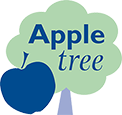Facebook for Business
“There are over one billion people on Facebook. Learn how to reach the right audience for your business and turn them into customers”. Facebook, 2013
This is the opening line on the Facebook for Business home page. It’s a pretty compelling statement. Whilst it’s used by the popular majority for personal use, and has been used by the B2C market over the past couple of years, it’s still in the early stages for companies in the B2B market.
At Appletree our mission is simple: To help businesses stop struggling, by helping them grow successfully and sustainably, using the right marketing, on a regular basis. One of the most effective tools we use for most of our clients is social media – we plan our client’s social media activity; ensure it is integrated with the rest of their marketing; then deliver it for them. Yes, we actually write and post updates on behalf of our clients, regularly and with business objectives in mind. Facebook hasn’t been part of the schedule of activity we’ve used for most of our clients, until now. It seems that Facebook for Business is moving rapidly into the business market, and not just in terms of advertising. Finally, businesses can use it to share content and engage with their target market.
We’ve used it recently for a couple of our B2C clients, to really good effect. One client hosts a food festival locally and we recommended they use Facebook as part of their marketing activity in the months leading up to the festival. We created a company page for the festival, then posted updates every day with updates on the event.
A new, younger audience was reached using Facebook, and also a new level of engagement was achieved as we could ‘speak’ directly to people, answering questions – “can we bring our dog to the festival?” being the most popular question asked!
Whilst we didn’t directly replace any other form of marketing, we added Facebook as a tool, alongside Twitter, and used social media to far greater effect for the client. The important thing was that it was integrated with the rest of their activities. Once someone ‘likes’ your company page, they go on to receive all the updates you post, and they can share these posts with their audience. It’s this ability to reach people you would never do through other means that makes Facebook so powerful.
Another client we’re seeing exciting results with sells high-end double glazing – windows, conservatories and orangeries. Facebook is a fantastic platform for this client as their products are so visual. We can create awareness, and crucially desire, through the product images we post regularly, alongside useful industry articles and home energy tips.
Just remember the golden rule of social media marketing: it’s not a direct selling platform. Do not use it to post blatantly self-promoting products or services, or claims of grandeur. It is there for you to share information that should be of use or interest (or ideally both) to the audience.
So why the sudden change? Other social media platforms have been used to promote businesses successfully for years. A few things are changing.
The fastest growing demographic on Facebook’s network is the 45 to 54 year age bracket, and 54% of Facebook users are aged between 35 and 55. It’s not just used by young people to upload social photos and activity updates. People are using it to gain opinion, research products and services. Currently (and this will change by the day) the average Facebook user makes 415 ‘shares’ every year. Your business page could be one of those pages shared across a potentially vast audience, if you use it for business.
Another very recent update and reason it’s now better for business: #’s. Facebook have also just announced that clickable hashtags are coming to the platform. Facebook comes to the hashtag game nearly last out of the major social media platforms; they’ve been standard on Twitter, Instagram, tumblr, Google+, and LinkedIn for some time now.
Hashtags are used in social media as a way to link together similar topics, events and content. This makes it great for business as it is a great way to share content and information with a mass audience quickly, and also it’s a great tool for finding content. # your content correctly and you’ll increase the chances of the right people finding your information. You do need to do your research though. What you may think people use as a search term may not actually be the case. Have a look at Twitter, ‘ #’s are so established and they’ll give you a really good insight into what words and phrases people use to # particular information or services. Oh, and don’t use #’s to feed your tweets straight onto your Facebook page – people will tire of the same content, it needs to be different: it’s a different audience and a different style of information is needed.
I’m still exploring how we can use Facebook for our B2B clients, as the use of it is not so obvious. Overall we can use Facebook as part of a strategy to enable our clients to get found online faster and more easily than their competitors. It’s a fantastic tool to help grow a small business; it can bring new contacts on a daily basis if you update it often enough. We’ve seen how great it can be for engagement and interaction with actual and potential customers.
So, are you going to join your kids and get on Facebook? Go on, use it for business, it does work – when done properly of course!
P.S. It’s really good for SEO too!




